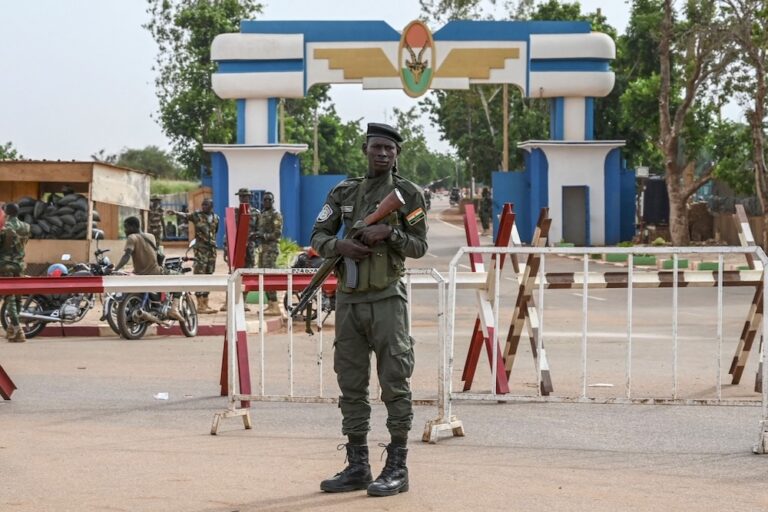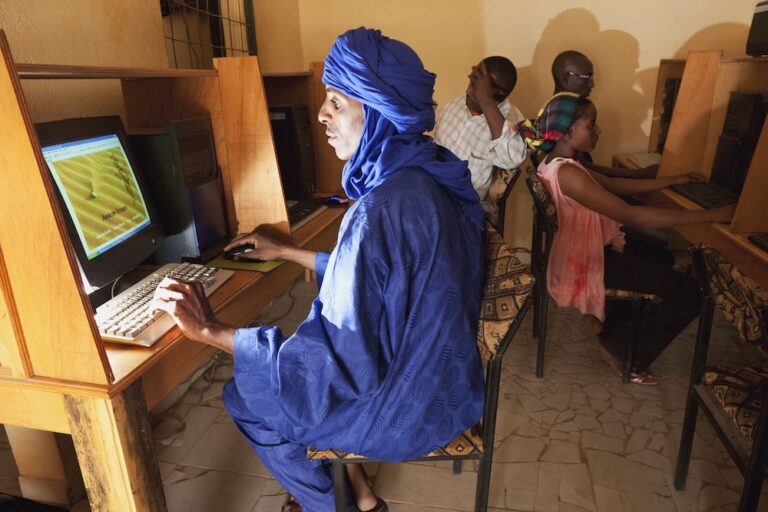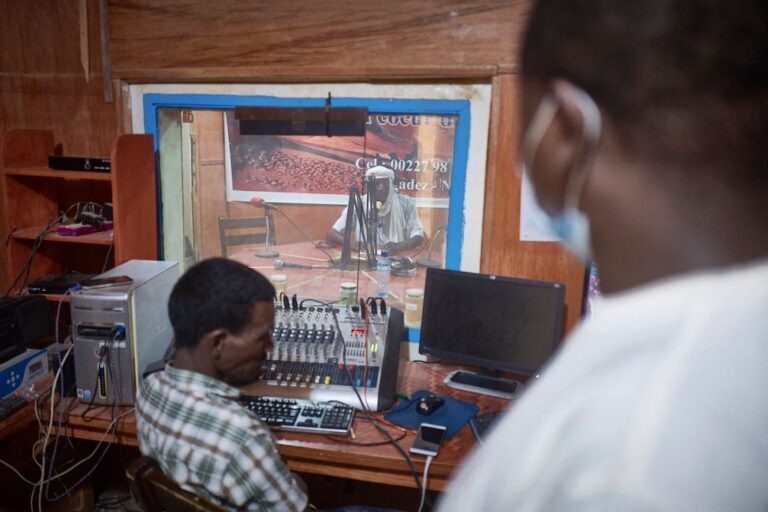(RSF/IFEX) – Reporters Without Borders strongly condemns a 15 May 2008 decision by Niger’s highest appeal court to reject a request to rule that the records of journalist Moussa Kaka’s intercepted telephone calls cannot be used to prosecute him on charges of “complicity in a conspiracy against the authority of the state.” The court’s decision […]
(RSF/IFEX) – Reporters Without Borders strongly condemns a 15 May 2008 decision by Niger’s highest appeal court to reject a request to rule that the records of journalist Moussa Kaka’s intercepted telephone calls cannot be used to prosecute him on charges of “complicity in a conspiracy against the authority of the state.”
The court’s decision effectively returns the case against Kaka to its starting point. The manager of privately-owned Radio Saraounia and Niger correspondent of Radio France Internationale and Reporters Without Borders, Kaka has been detained since 20 September 2007.
“Kaka is about to begin his eighth month in detention because of telephone taps carried out in a questionable manner that prove nothing except that he was under surveillance,” Reporters Without Borders said. “Today’s ruling by Niger’s highest court is an enormous disappointment for all those who believe in the presumption of innocence and due process.”
The press freedom organisation added: “We urge Niger’s authorities not to go ahead with a trial that will just be a sad spectacle with a foregone conclusion.”
Rejecting a petition submitted by Kaka’s lawyers, the country’s highest appeal court ruled that the telephone taps were legal and could be used in evidence against Kaka although they were carried out by an unidentified government agency without a warrant. The court also rejected a request for Kaka’s release.
Kaka will now have to appear before Niamey’s senior investigating judge for questioning about the content of the phone intercepts. No date has been set for the resumption of the judicial investigation. Kaka has been held for almost seven months in a Niamey prison.
The prosecution’s case is based on recordings of phone calls between Kaka and Aghali Alambo, the leader of a Tuareg rebel group called the Niger People’s Movement for Justice (MNJ). The authorities, who dismiss the MNJ as a group of “armed bandits” and refuse to acknowledge the political nature of any of its demands, claim that the phone calls are evidence of Kaka’s “complicity”. This is disputed by Kaka’s lawyers who say the phone calls were just part of the normal contacts between a journalist and a source.


